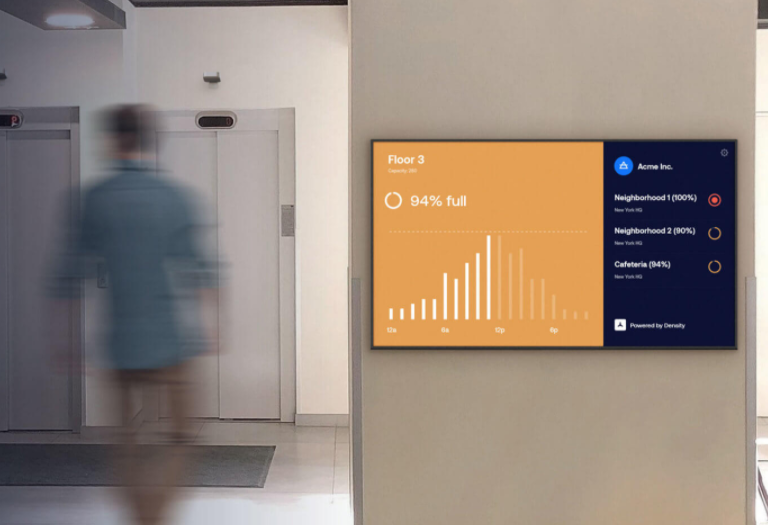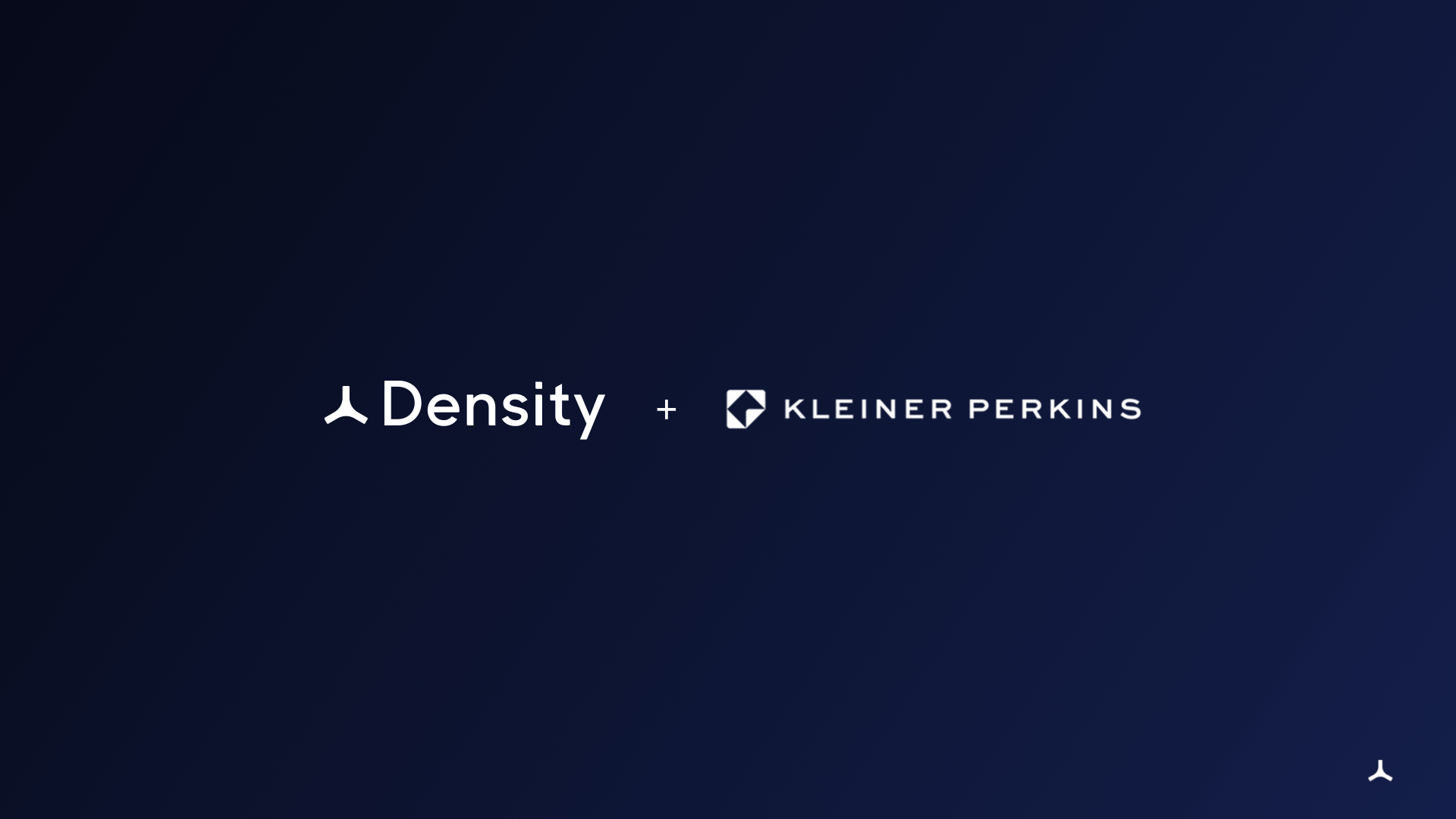

This fall, buildings around the country are facing the challenge of re-opening in a pandemic. Density, the standard platform for counting people, has successfully closed $51 million in Series C funding to help safely manage that process. The new funding round was led by Kleiner Perkins and includes 01 Advisors, Upfront Ventures, Founders Fund, Ludlow Ventures, Launch, LPC Ventures, DTA in participation with Alex Rodriguez, Julia and Kevin Hartz, Cyan and Scott Banister, and others. Density launched in 2014 in the Tech Garden in downtown Syracuse, and now has offices in San Francisco, New York City, and a new manufacturing center in Syracuse. Five of the co-founders are Syracuse University alumni, including Andrew Farah ’09 (Writing) and G’11 (iSchool), Steve VonDeak G’08 (College of Law) who is a Syracuse University LaunchPad Alumni Entrepreneur in Residence, Ben Redfield ’12 (iSchool), Brian Weinreich, ’10 (Psychology and Biology) and Robert Grazioli ’11 (iSchool). Jordan Messina, also a co-founder, grew up in Syracuse and attended Binghamton University.
Prior to this round, Density had raised $23 million bringing total funding to date to $74 million.
Read more about Density and the deal here in at Venture Beat. Read the full news story in BUSINESS WIRE here.
“Thirty-two million Americans are unemployed and nearly half of the workforce can’t work from home. The world is trying to reopen. In many places essential businesses are required to remain open. Companies are just trying to do this safely,” said Farah. “Our team is working around the clock to handle unprecedented demand from offices, manufacturers, grocery stores, industrial plants, governments. They’re relying on Density to rationalize real estate and keep people safe.” Density counts people in any space anonymously, accurately, and in real-time to help businesses safely reopen their offices and measure ROI of real-estate portfolios. Clients include Pinterest, Booz Allen Hamilton, Hello Fresh, and Resorts World Casino, many of which are using Safe by Density to managing reopening.
With this round of funding, Density will accelerate investment in software and product, expand its sales team, and scale their platform, adding positions around customer success, sales, infrastructure, ops, manufacturing, engineering, and core product. Density is hiring.
How it started: A blog post by Andrew Farah for Kleiner Perkins
Density planted seeds at the Tech Garden in Downtown Syracuse, where many of its founders had previously worked at various student startups and had been involved in the Syracuse University Student Sandbox program. “When we first conceived of Density six years ago, we just wanted to know if there was a line at our favorite coffee shop, Café Kubal in Syracuse” said co-founder Andrew Farah in a blog post for Kleiner Perkins “We thought it was odd there was an API for inclement weather but there wasn’t an API for how many people were in a space. We reasoned, if a solution didn’t already exist — which surely it must — it shouldn’t be more than a weekend project. How hard could it be to count people?”
Farah goes on to note, “We were optimistic and wrong by about three years. As we tried to solve our own problem, we learned two important lessons. First, people are weird. They do things you wouldn’t expect — they bump into each other, take phone calls, and they bring a lot of stuff with them: bags and boxes, bicycles and baskets, tv’s and trash cans, chairs, carts, iPads, lunch, even other people sometimes. This makes counting them unfathomably complex. You can’t fault commodity products for being bad at the analysis. People are just really weird.”
Second, he says, “We learned we weren’t alone. We met hundreds and now thousands of others trying to answer the same question — how many people used my office, bank, lounge, desk, space,floor, building, campus… city. If only we knew, we could reduce waste and energy use, improve access and productivity, clean the spaces that need it and skip the ones that don’t. If only we knew, we could A/B test physical space or even use less concrete! If only we knew how the world was used, we could measure how it works, identify its inefficiencies, and remake it.”
Farah explains, “Until recently, we had been helping hundreds of companies do just this — quantify how buildings were used so they could design them more effectively. Today, things have changed. We’ve been asked to help those same companies and hundreds more reopen their buildings and businesses safely. We’re helping them avoid leases they don’t need in order to prioritize payroll. We’re working to keep meat processing plants, distribution centers, manufacturers, offices, universities, even an entire village in Ohio open and safe.”
He notes that “The built world was modernizing before the pandemic. It will continue to modernize well after it’s over. In the meantime, we’re proud to say we’re not going anywhere and we’re eager to help.”
About Density:
Density measures how people use space in real-time without invading privacy. Using proprietary depth sensors and deep learning algorithms, the platform accurately and anonymously counts people in real time. Organizations use Density to improve efficiency and enhance occupant experience in buildings, workplaces, and real estate. Unlike a camera, Density’s platform doesn’t capture personally identifiable information and is purpose-built for accurately measuring how people use physical space. Together, Density’s customers manage over 1 billion square feet of real estate.
For more information, visit www.density.io and follow @densityio.